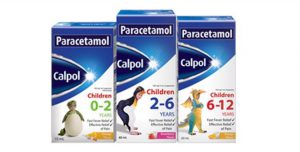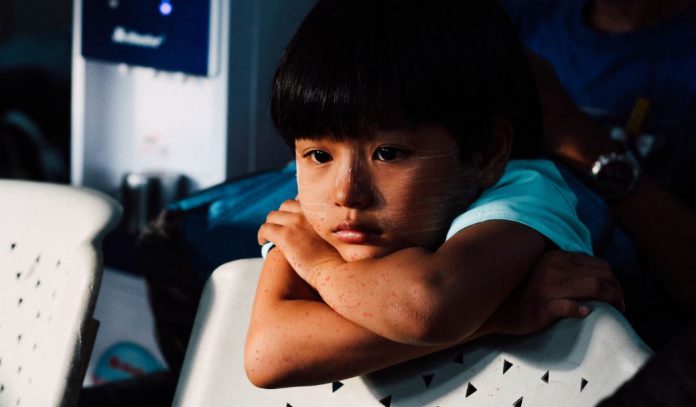Parents everywhere were up in a frenzy the last few months, thanks to the rise in measles cases not just here Manila, but in other areas and even countries as well. So if you see that tell-tale fine red rash on your child’s head that slowly spreads throughout his extremities, then here are a few tips to keep in mind.
Don’t panic.
Every parent’s first instinct, once we realize that our child is sick is to go the pediatrician real quick. But if you suspect that your child has the measles, please stop and reconsider first. Measles is highly contagious and your child can spread the virus to anyone he comes in contact with – including unvaccinated small kids and pregnant women, both of whom measles can have dangerous effects. So it’s best to call your pediatrician’s clinic first to schedule an appointment and give them a heads up that your child might have measles to minimize your child’s exposure to other patients.
On the other hand, if you have a baby who might have the measles, then it’s best to take him to a hospital with an infectious or isolation unit. You can also call first before going to ensure that they can accommodate you and your child.
Taking these preventive measures will ensure that you don’t expose other babies or pregnant women to measles. At the same time, you should note that once the measles virus has set in, there’s not much you can do but to let the illness run its course. This means, that you should also…
Isolate your child.
This also goes in line with the preventive measures stated above. After confirming that your child has the measles, it’s best to keep him home and isolated during the so-called contagion period – which is four days before and after the rash appears. Measles is highly contagious. The virus can easily spread to others just by breathing in the same air as someone who has it. So if there are unvaccinated kids or adults in your household, then it’s best to call your doctor and check if they can still get vaccinated or prescribed a medication that might help boost their immunity from the disease.
Consider Vitamin A.
Aside from talking to your doctor about measles vaccines, you can also ask him about boosting your family’s Vitamin A. Studies have found that Vitamin A deficiency is a risk factor for severe measles. At the same time, the World Health Organization (WHO) recommends Vitamin A supplements to lessen the symptoms and even reduce complications from measles.
Comfort your child.
Measles’ symptoms include rashes, fever, congestion, coughs, and red, watery eyes. The fever can last for around five days while the other complications can take up to two weeks. These can take a toll on your child, so it’s best to comfort him as much as possible by:
- Give him Paracetamol (Calpol) to manage his fever. You can manage measles-induced fever by giving your child a dose of fast-acting Paracetamol as soon as his temperature rises. Paracetamol (Calpol) is an alcohol-free suspension that relieves mild to moderate fever and pain. Suitable for children aged 0 to 12, Calpol starts to work on fever in as fast as 15 minutes, thereby giving your child much-needed comfort.
Note that aspirin should not be given to kids with viral infections such as measles as doing so can increase the risk of them developing Reye’s syndrome – a rare but potentially fatal illness that damages the brain and liver.
- Let him rest and keep him hydrated. Another goal in managing measles is to prevent your child from dehydration. So it’s best to supply him with liquids or any doctor-prescribed oral rehydration therapy.
- Keep the medicines simple. There is no specific medical treatment for measles. And although measles’ symptoms can include a congested nose or an ear infection, don’t give him any medication for congestion or infection (aside from Paracetamol) without consulting your doctor first as doing so might prove to be more harmful.

Watch out for red flags.
Those who are most at risk for serious complications from measles include kids aged 5 and below and even adults older than 20. Complications that can arise from measles include pneumonia, brain swelling, seizures, diarrhea, ear infections, and hearing loss due to brain damage. If you have been keeping abreast of the recent measles outbreak, you would know that as much as 280 kids have died from measles complications. So it’s best to call your doctor or rush your child to the emergency room if you notice any of these symptoms: high fever (above 39 degrees), abnormal behavior such as extreme irritability or hallucinations, lethargy (including inability of child to give a coherent response), labored or fast breathing, headaches, seizures, or vision or hearing problems.
Measles is a highly contagious and dangerous, yet preventable disease. If your child doesn’t have it yet, then its best to consider updating his measles vaccinations right away to ensure that he and other kids around him are safe from the disease. And if your child does get it, then it’s best to not panic and stay on top of it.
*Always seek the direct advice of a medical professional or your doctor for any health issues or concerns. The use of any medicine and dosages should always be upon the recommendation of your Pediatrician.
*Published with Calpol.
References:
US National Library of Medicine National Institutes of Health, World Health Organization, ReliefWeb, Parents





